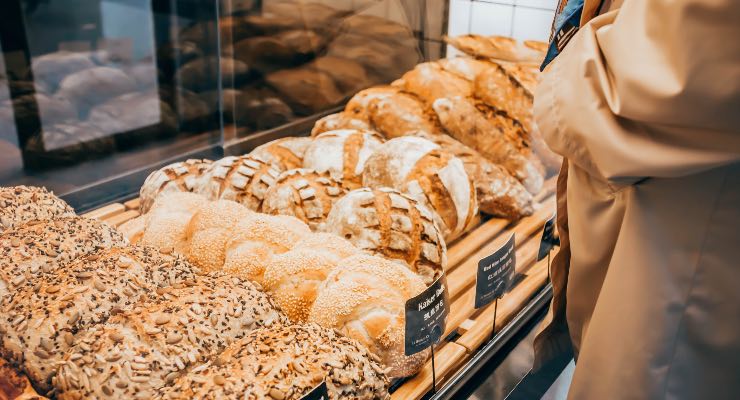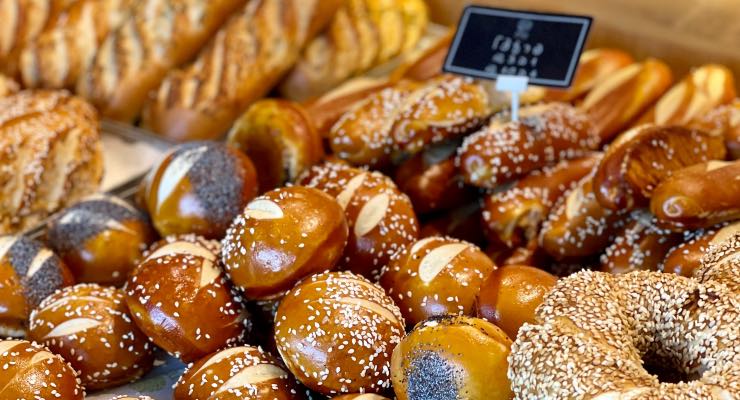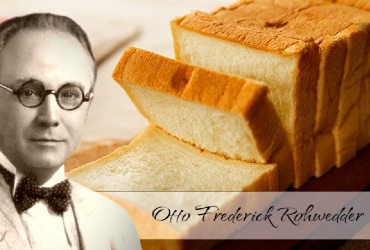The Origins of the Word 'Bread'
Once upon a time, in a world not so different from ours, there lived a myriad of languages and dialects, each painting the world with its unique strokes and colours. Today, let’s embark on a journey to unravel the story behind the simple, yet profound name of a food that has journeyed with humans through the ages – bread. How did this universal staple, this ancient companion of mankind, get its name?

Photo by 燕珊 张
Let’s start with a small, humble word: "bread." It’s a simple word, yet it holds within it tales of civilisations, of human endeavours, and of countless meals around a fire. The word "bread" might seem straightforward, but like the food it represents, it’s steeped in history.
Our story begins long, long ago, with the ancestors of English, the Germanic languages. The ancestors of the English speakers we are today had a word for this new, marvellous invention that was a mix of grains and water, cooked over the fire. They called it “braud,” a term that echoed through the ages and evolved, morphing and reshaping, to become the word "bread" we use today.
Now, the journey of "braud" to "bread" isn’t a simple one-way road. It’s more like a tree, with its roots reaching deep into the past, and its branches spreading wide, touching different cultures and languages. For instance, the Old High German word “brod,” the Middle Dutch “brood,” and the Old Norse “brauð” are all relatives of the English "bread," their sounds and shapes sculpted by the tongues of our ancestors.

Photo by Irene Strong
And while our Germanic ancestors were shaping the word "braud," their neighbours, the Romans, were doing something similar. The Latin word for bread was “panis,” and if this rings a bell, it’s because this ancient word is the ancestor of the modern French “pain,” Italian “pane,” and Spanish “pan,” all meaning bread. It’s fascinating to think how these words, born in different lands and cradled in different tongues, traveled through time, whispering the tales of loaves and bakes to the generations that followed.
The word "bread" didn’t just stand for a specific type of food. It came to symbolise sustenance and life itself. Think about the sayings we have, like “breaking bread together,” which means sharing a meal and coming together in unity, or “earning one’s bread,” referring to making a living. These phrases reflect the essential role bread has played in human societies throughout history, not just as a food item, but as a symbol of community and survival.
Let’s not forget the journey of the actual bread, the transformation from a simple mix of water and grains to the countless varieties we enjoy today. Imagine the first people who stumbled upon this magical concoction, their amazement at the simplicity and the deliciousness of their creation. These ancient bread-makers didn’t have the word "bread" to call their invention, but the joy and fulfillment it brought were the same.
As we traveled and traded, conquered, and merged, we shared the secrets of bread-making. Each land it touched added its essence, its unique flair to the bread, making it their own. The Egyptians discovered fermentation, making the dough rise and become fluffy. The Greeks played with ingredients and techniques, and the Romans spread the art of bread-making across Europe, creating public bakeries and ensuring everyone had a share of this magical invention.
In every corner of the world, bread donned a new name, a new identity. From the “roti” in India to the “bing” in China, from the “tortilla” in Mexico to the “pão” in Portugal, the name of bread danced to the tunes of different languages, each adding a note, a beat to the melody of its existence.

Photo by Cherith Runyon
As the world turned and the winds of time blew, carrying the seeds of words and loaves to new lands, the name and essence of bread continued to evolve. It played a pivotal role in shaping cultures, sparking revolutions, and forging bonds. The name that varied across lands and languages always echoed the common human experience, the shared joy found in a simple loaf.
Today, as we stand in the echoing halls of history, amidst the whispers of ancient tongues and the aromas of age-old ovens, we see the word "bread" not just as a label for a food item but as a living, breathing entity. It tells the tales of our ancestors, of their journeys and discoveries, of their struggles and joys. It is a word that has seen the rise and fall of civilisations, that has been a constant companion to humans through the epochs, a symbol of our shared heritage and our enduring connection to the earth and to each other.
The word "bread," in its simplicity and depth, is a testament to our collective journey as a species. It is a word that has been kneaded and shaped by countless hands, a word that has risen through the ages, acquiring flavours and textures from the myriad of human experiences. It is a universal symphony, composed by the diverse instruments of human languages, narrating the story of mankind, one loaf at a time.
In the tapestry of human existence, the word "bread" is woven with golden threads, reflecting our adventures, our innovations, and our unity. It is a word that, like the food it represents, nourishes our bodies and our souls, reminding us of our shared roots and our intertwined destinies. So, the next time you hear the word "bread," remember the journey it has been on, the lands it has seen, and the stories it holds within its simple, yet profound structure.
It’s quite a journey, isn’t it? From ancient fires to modern tables, the story of how bread got its name is not just about letters and sounds; it’s about human connection, about the shared love for a food that has been with us through thick and thin. The name "bread" is much more than a combination of letters; it’s a vessel carrying the essence of humanity, the stories of our ancestors, and the flavours of our shared history.





